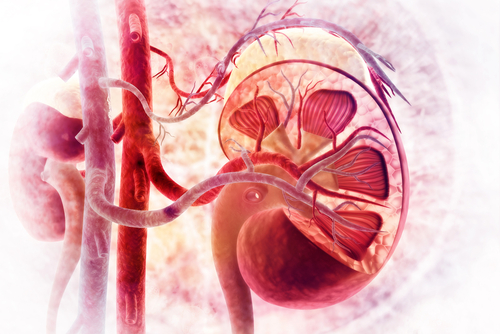Researchers Identify New Molecule That Leads to Kidney Damage in AAV Patients
Written by |

Researchers have identified a fat molecule that contributes to kidney damage in patients with antineutrophil cytoplasmic antibody (ANCA)-associated vasculitis, or AAV.
The molecule, sphingosine 1-phosphate (S1P), works to enhance the damaging effects of MPO autoantibodies, one of the two most common disease-causing antibodies produced by AAV patients.
The study, “Sphingosine-1-phosphate (S1P) enhances glomerular endothelial cells activation mediated by anti-myeloperoxidase antibody-positive IgG,” was published in the Journal of Cellular and Molecular Medicine.
ANCA vasculitis is characterized by the production of autoantibodies that induce inflammation and destruction of small blood vessels. Patients with this condition often develop kidney symptoms, as the autoantibodies can target the small vessels of the filtering units of the kidneys.
In the long run, this may induce kidney damage and failure.
The signaling molecule sphingosine-1-phosphate (S1P) is a key regulator of blood vessel inflammation and is involved in multiple vascular inflammatory conditions. Studies have shown that S1P levels in the blood are associated with kidney involvement and disease in AAV patients, suggesting a role of S1P in the disease.
Researchers from Peking University in China studied S1P to see if it could be involved in the molecular process of kidney injury triggered by MPO autoantibodies.
Exposing endothelial kidney cells to either MPO autoantibodies or S1P led to a disruption in the cells’ natural layer. But the destruction of cell-to-cell connections was enhanced when MPO autoantibodies and S1P were both present, the team found. Endothelial cells are the cells lining blood vessels.
This effect significantly changed the permeability of the endothelial cell layer, which negatively influenced its ability to filter properly.
A detailed evaluation of the cellular changes revealed that in the presence of S1P, endothelial kidney cells had increased amounts of two adhesion molecules, ICAM and VCAM, which are known to contribute to AAV blood vessel damage.
“We speculate that in the presence of MPO-ANCA-positive antibodies, S1P-induced ICAM-1/VCAM-1 up-regulation may promote neutrophil adhesion to [endothelial kidney cells], which may aggravate the endothelial barrier dysfunction,” the researchers said.
Next, the team used chemical compounds to regulate the activity of S1P receptors in these cells. This approach confirmed that S1P was indeed increasing ICAM and VCAM levels in the presence of MPO autoantibodies, demonstrating its role in the progression of ANCA-associated kidney injury.
The results suggest that blocking S1P receptors may delay kidney damage in AAV patients.
“The current findings are of help to figure out the pathogenic role of S1P in AAV, thus providing potential clues for intervention strategies,” the researchers stated.





